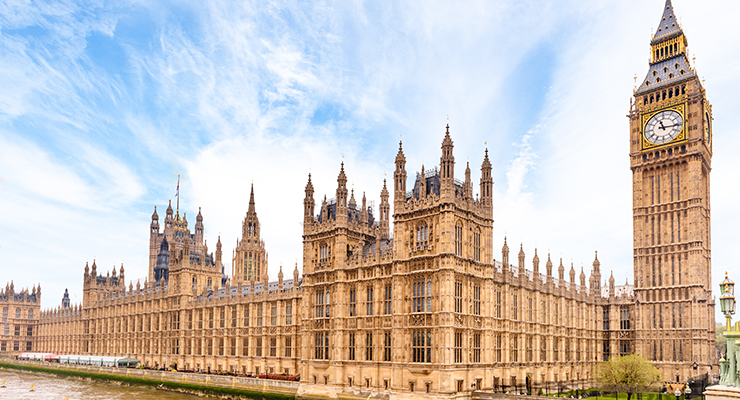
Boiler Upgrade scheme ‘seriously failing to deliver’, says committee
The Government’s Boiler Upgrade Scheme (BUS) is ‘seriously failing to deliver’ on its objectives, an inquiry by the House of Lords Environment and Climate Change Committee has concluded.
In a letter to Lord Callanan, Parliamentary Under Secretary of State for Energy Security and Net Zero, the Committee has warned that if the current rate of take-up continues, only half the allocated budget will be used to help households switch to low-carbon heating systems.
In 2021 around 50,000 heat pumps were installed across the UK, with less than 2 per cent of homes in England and Wales having low-carbon heating systems.
Baroness Parminter, Chair of the Environment and Climate Change Committee, said the Government’s target of 600,000 heat pump installations per year by 2028 is very unlikely to be met.
The inquiry concluded that public awareness of low-carbon heating systems is very limited, with inadequate promotion of the scheme and insufficient independent advice for homeowners. It also warned that a healthy market of installers and manufacturers will not be in place in time to implement other low-carbon heating policy measures smoothly.
The Committee also found that, even with the available grant, the upfront costs of heat pump installation are too high, making it impossible for low-income households to benefit.
It said misleading messages, including from the Government, are negatively affecting take-up of low-carbon technologies like heat pumps, and said hydrogen is ‘not a serious option’ for home heating in the short-to-medium term.
Greater clarity needed
The Committee made a number of recommendations to improve the scheme, including calling on the Government to:
- provide greater clarity on feasible low-carbon home heating options through a consistent policy framework, public communications, and householder advice.
- roll over the remainder of the BUS’ first-year budget into the second year and consider extending the scheme.
- make sure Energy Performance Certificates properly reward households for switching to low-carbon heating.
- upgrade the provision of Government advice, [and] recognise the role of independent retrofit coordinators, to help households navigate low-carbon heating installations.
- relax the requirement arising from Permitted Development Rights to site a heat pump a certain distance from neighbouring properties.
Baroness Parminter said: “The transition to low-carbon heat is fundamental in the path to net zero, given that 17 per cent of the UK’s greenhouse gas emissions come from our homes.
“The Government must quickly address the barriers to a successful take-up of the Boiler Upgrade Scheme to help grow the take up of low-carbon heating systems. It is vital they do so if we are going to meet our net zero ambitions.”
Better communication and clearer training
Most of the heating industry has agreed with the Committee’s findings.
Mike Thornton, chief executive at Energy Saving Trust, said: “BUS remains a hugely positive step but key policy gaps remain. More needs to be done to help people access grants and low-cost finance to address the upfront costs of switching to heat pumps. Until both the cost of installing and running a heat pump are consistently competitive with, or better than, a gas boiler, [there] will remain significant barriers.”
Henk van den Berg from Daikin UK said: “The government must do better at properly communicating the benefits of heat pumps. We also believe the ban on the installation of gas boilers in new homes should be brought forward. Clearer training support for installers – particularly sole operators – will be key to meeting this target. The government needs to support our industry in shouting about the opportunities that jobs in the green economy offer.”
Mark Wilkins, Technologies and Training Director at Vaillant, said: “BUS is just one piece of the puzzle. We await the publication of the Green Finance Strategy, [which] we believe should provide market certainty… and further increase demand for low-carbon technologies. We ask the Government to consider extending the BUS to match the duration of the 0 per cent VAT rate on heat pump installations, which ends in Spring 2027.”
Lawrence Slade, Chief Executive of Energy Network Association, which represents the UK’s energy network operators, said: “This is nothing to do with presenting hydrogen as an option for home heating. Debates about one technology over another are simply not helpful and add confusion. The scheme is failing to deliver for customers because public awareness is low and promotion of the scheme has been inadequate. The use of heat pumps and the adoption of hydrogen are going to be needed if the UK is to meet its net-zero target.”
Meanwhile Mike Foster, CEO of the Energy and Utilities Alliance, said: “While we agree the Boiler Upgrade Scheme is failing, we want to see it scrapped. Giving a £5,000 taxpayer handout to the well-off simply cannot be justified when millions are living in fuel poverty and we all face a 20 per cent increase in our bills from April.”
The full Committee report can be found online here.

